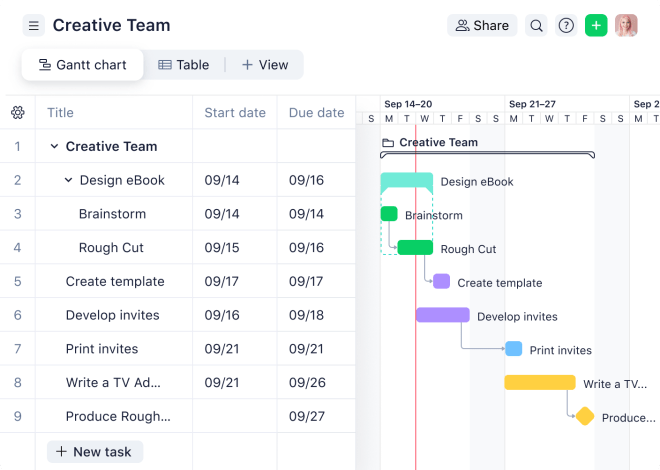Fire Emblem Engage: The Ultimate Skill Inheritance Guide
Fire Emblem Engage, with its compelling cast of characters and strategic depth, offers players a myriad of choices. One crucial aspect of mastering the game lies in effectively managing and inheriting skills. Skill inheritance can dramatically impact unit performance, shaping battles and determining victory. This comprehensive guide delves into the best skills to inherit, explaining their uses and strategic implications. Choosing wisely is key to conquering the challenging battles ahead.
Understanding Skill Inheritance
Before diving into specific skills, it’s important to understand the mechanics of skill inheritance in Fire Emblem Engage. Unlike some previous entries in the series, Engage employs a streamlined system. Each unit has a limited number of skill slots, and careful consideration is paramount. Skills are inherited from other units, often requiring specific item usage or fulfilling certain conditions. The strategic implications are significant, influencing unit roles and overall team composition.
Factors to Consider When Inheriting Skills
- Unit Class: Certain skills synergize better with specific classes. A fast unit might benefit greatly from skills focused on doubling or avoiding counterattacks, whereas a tankier unit might prioritize defensive buffs or counter skills. Understanding class strengths is paramount.
- Weapon Type: Consider the weapons your unit predominantly uses. Skills that enhance specific weapon types will amplify their effectiveness. A unit mainly wielding swords will benefit less from axe-specific skills.
- Unit Role: Each unit fulfills a specific role within the army. A dedicated healer will benefit from skills that boost healing capabilities, while a frontline fighter may prioritize damage increase or durability.
- Enemy Composition: The types of enemies encountered in different chapters should influence your skill choices. Skills effective against armored units are less important when facing primarily flying foes.
Top Tier Inheritable Skills: Offense
Offensive skills are crucial for dealing significant damage and swiftly eliminating enemies. However, simply maximizing damage isn’t always the best strategy. Consider the balance between raw power and tactical advantages.
1. Swift Strikes and Counterattacks
Skills that allow for double attacks or effective counterattacks are incredibly valuable. These can significantly increase a unit’s damage output, especially against slower enemies. Prioritizing these skills can turn the tide of battle, enabling your units to strike first and survive counterattacks.
2. Weapon-Specific Boosts
Many skills provide significant boosts to specific weapon types, such as increased might for swords or lances. These skills can substantially increase a unit’s damage output with their preferred weapon type. This is especially crucial for units reliant on specific weapons for their effectiveness.
3. Critical Hit Enhancements
Critical hits can be game-changers, dealing massive damage and potentially eliminating powerful foes. Skills that increase critical hit rate or damage are highly sought after and can dramatically increase a unit’s offensive potential. A skilled player can leverage these critical hits to strategically defeat more powerful units.
Top Tier Inheritable Skills: Defense
Defense is just as crucial as offense. While damage output is important, surviving enemy attacks is equally vital for maintaining a strong frontline and protecting your vulnerable support units.
1. Resistance and Defense Boosts
These skills are essential for increasing your units’ survivability. Higher resistance reduces magic damage, while increased defense mitigates physical attacks. These are particularly important for units that take the brunt of enemy attacks.
2. Avoidance Skills
Skills that increase evasion rates can be invaluable for keeping your units alive. By avoiding attacks, units conserve health and maintain their combat effectiveness for longer periods. Combining these with other defensive skills creates extremely resilient units.
3. Healing and Recovery
While not strictly defensive, skills that enhance healing or recovery play a crucial role in ensuring unit survivability. These skills are particularly important for units on the front lines, allowing them to quickly recover from damage and continue fighting.
Top Tier Inheritable Skills: Utility
Beyond raw offensive and defensive capabilities, utility skills provide significant tactical advantages that can change the flow of battle. These skills offer flexibility and adaptability, enhancing your strategic options.
1. Movement Enhancements
Skills that improve movement range can significantly impact battlefield positioning. Being able to move further allows units to reach advantageous positions or quickly reposition to support allies. This strategic advantage can often determine the outcome of a battle.
2. Terrain Advantage
Certain skills enhance a unit’s performance on specific types of terrain. These skills can be incredibly useful, particularly in maps with diverse terrain features. Adapting to the battlefield is key to victory.
3. Status Effect Mitigation
Many enemies inflict various status ailments. Skills that reduce the chance of being afflicted or negate the effects of these ailments are essential for maintaining your units’ effectiveness. These skills contribute to overall team survivability and consistency.
Advanced Skill Inheritance Strategies
Mastering skill inheritance requires a deep understanding of unit roles, enemy compositions, and the strategic implications of each skill. Experimentation and adaptation are key to discovering the most effective strategies for your playstyle.
- Consider Unit Synergies: Pair units with skills that complement each other’s strengths and weaknesses.
- Adapt to the Enemy: Adjust your skill inheritance based on the types of enemies you are facing.
- Prioritize Key Units: Focus on inheriting the best skills to your most crucial units.
- Experiment and Iterate: Don’t be afraid to try different skill combinations to find what works best for you.
By carefully considering these factors and experimenting with different combinations, players can optimize their units and significantly enhance their chances of success in Fire Emblem Engage. Skill inheritance is not a one-size-fits-all solution; it requires adaptability and strategic thinking. Mastering this aspect of the game is vital to achieving victory.
The strategic depth of Fire Emblem Engage lies not only in its engaging storyline and challenging battles but also in the nuanced mechanics of skill inheritance. This intricate system allows for significant customization and strategic adaptation. With careful planning and a deep understanding of unit capabilities, players can cultivate truly powerful teams. The rewards for mastering skill inheritance are substantial, leading to more satisfying victories and a deeper appreciation for the game’s complexity. Remember that successful strategy is a blend of offensive might, defensive resilience, and tactical adaptability; skill inheritance is the key to unlocking this potential.
Ultimately, the “best” skills are subjective and dependent on individual playstyles and strategies. However, understanding the underlying mechanics and the strengths of various skill types will equip players to make informed decisions. Through thoughtful planning and experimentation, you can forge a formidable army capable of overcoming any challenge.
Strategic depth and adaptability are crucial elements within the game. Mastering these aspects is key to achieving victory. Effective unit management is essential, and understanding the nuances of skill inheritance will make the difference between triumph and defeat. This comprehensive guide serves as a valuable resource, empowering players to dominate the battlefield.
Therefore, embrace the strategic depth, experiment with different combinations, and enjoy the rewarding experience of mastering skill inheritance in Fire Emblem Engage.



